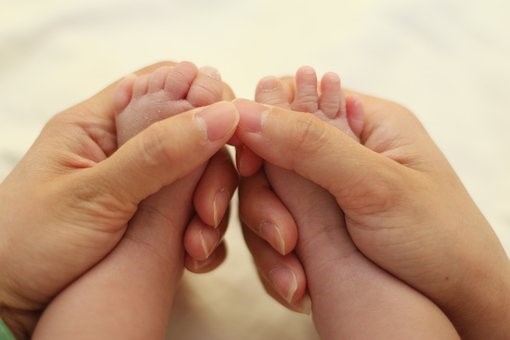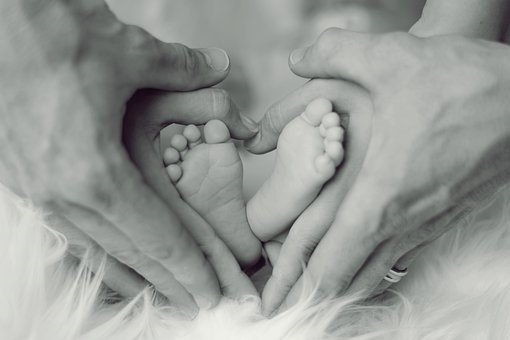
Are you a parent who’s always worrying about how to create the best environment possible for your children? Have you been searching for ways to make their bedrooms clean, comfortable, and safe at the same time? Investing in hardwood flooring for your kid’s room may be an ideal solution. Hardwood floors are incredibly durable and offer many benefits that can help provide a healthy living space for your family. From encouraging better air quality to creating an easier-to-maintain environment and creating more design opportunities, this guide looks at why it may benefit you and your kids to have hardwood flooring in their bedrooms.
Introducing the Benefits of Hardwood Flooring in a Kid’s Room
When it comes to decorating a kid’s room, we want to ensure that their space is both safe and stylish. One of the best ways to achieve this is with hardwood flooring. Not only does it offer an elegant aesthetic that can work with a variety of decor themes, but it also has several benefits. First and foremost, hardwood is durable, making it practical for a room where kids play, jump, and occasionally spill things. Additionally, it’s easy to clean, which is always a plus when it comes to messy youngsters. And let’s not forget the hypoallergenic qualities, which can help keep allergies and other respiratory issues at bay. With its timeless beauty and practicality, it’s no wonder that hardwood flooring is a wise choice for a kid’s room.
Advantages of Hardwood Flooring for Kids’ Safety
As a parent, keeping your child safe is always a top priority. When it comes to flooring options in your home, hardwood flooring provides a multitude of advantages for your children’s safety. Unlike carpet, hardwood floors are easier to clean and don’t trap as many allergens, such as dust mites, making them a healthier option for your little ones. Hardwood floors are also slip-resistant, reducing the likelihood of slips, trips, and falls, which is especially important for active children. Additionally, hardwood floors are durable and can withstand wear and tear from toys, spills, and other rough play. Overall, hardwood flooring is a beautiful and practical choice for any family looking for a safe and stylish flooring option.
Why Hardwood Flooring is Easy to Clean and Maintain
Hardwood flooring is a popular choice amongst homeowners due to its sleek and timeless design. However, it’s not just its aesthetics that make it a desirable option. One of the many advantages of hardwood flooring is its ability to be both easy to clean and maintain. Unlike its counterparts, such as carpet, hardwood flooring doesn’t trap dirt, dust, or allergens, making it a great option for those with pets or allergies. Additionally, hardwood flooring can be easily cleaned with a simple sweep or vacuum and a damp mop. Plus, with proper maintenance, such as regular waxing and polishing, hardwood flooring can maintain its shine and luster for years to come. Overall, hardwood flooring provides both style and practicality, making it a winning choice for any home.
Enhancing Your Child’s Comfort with Hardwood Flooring
As parents, we want our children to feel safe and comfortable in their own homes. Hardwood flooring can be a great choice for many reasons, but it can also be unfamiliar territory for some kids. Fortunately, there are several things you can do to help ease your child’s transition to hardwood floors. One option is to add area rugs for extra cushioning and to help make the space feel cozier. You can also encourage your child to wear socks or slippers to keep their feet warm and prevent slipping. Finally, consider using furniture pads to avoid scuff marks and protect your child from any sharp corners. With a few simple adjustments, your child can feel just as comfortable on hardwood floors as they would on carpet.
Design Ideas for Making a Kid-Friendly Home with Hardwood Floors
Hardwood floors are a beautiful addition to any home, but they can be a challenge when you have kids running around. However, with a few design ideas, you can make your hardwood floors kid-friendly without sacrificing style. To start, add rugs and carpets in high-traffic areas like the living room or playroom. You could also consider using non-slip rug pads to prevent slips and falls. Additionally, choosing hardwood floors with a matte finish will help hide scratches and scuffs. Finally, invest in furniture with soft edges to prevent injuries and create a safer environment for your little ones. With these design ideas, you can have the best of both worlds – a beautiful home with hardwood floors that are also safe for your kids to play on.
Tips for Keeping Hardwood Floors Looking New Over Time
Hardwood floors are a timeless classic that adds elegance and beauty to any home. However, over time, they can lose their luster and become scratched or worn. Fortunately, there are a variety of tips you can use to keep your hardwood floors looking new for years to come. One of the most important steps is to avoid using harsh chemicals or abrasive cleaners that can damage the finish. Instead, opt for a gentle cleaner designed specifically for hardwood floors. Additionally, be sure to keep your floors free of debris and dirt by sweeping or vacuuming regularly. Finally, consider using rugs or mats in high-traffic areas to help protect the floor from wear and tear. By following these simple tips, you can enjoy the beauty of your hardwood floors for many years to come.
In conclusion, hardwood flooring can be a great choice for your kid’s room or playroom. Not only does it reduce the risks of injury, but it also provides all sorts of benefits in terms of material durability and aesthetic appeal. And with creative design ideas such as playful colors and patterns, you can make sure that your child’s space is both safe and comfortable. Plus, some simple cleaning tips go a long way in minimizing dirt and wear and tear to keep your child’s space looking new. With the right tips and solutions, you can create a beautiful and kid-friendly home that everyone will enjoy! Click here to know more details.

As a new parent, you are entering a whole new world of love, joy, and responsibilities. It can be an exciting time full of growth for both your child and as parents. However, it is also important to have the right guidance during such a transition; this includes understanding the basics of taking care of a newborn baby. To help equip you with essential advice for caring for your little one over the coming months, this post will discuss topics ranging from swaddling and sleep training to nutrition essentials and more.
Feeding your baby – tips on when, how, and what to feed your baby
As parents, one of our primary concerns is making sure our baby is getting the proper nutrition they need to grow and develop. Feeding your baby can seem overwhelming at first, but with the right guidance and knowledge, it can become a special bonding experience between you and your little one. It is important to know when to start introducing solids and how to properly prepare and serve them. It’s also crucial to be aware of the different feeding methods and choose what is best for your family’s lifestyle. Overall, feeding your baby is a journey that requires patience, education, and experimentation to find what works best for your unique situation.
Sleeping arrangements – setting up a safe sleep environment for your baby
As a parent, providing a safe sleep environment is one of the most important tasks you have. Infants require a safe and conducive sleeping environment that not only promotes comfort but also maximizes their safety. One of the most important things to remember when setting up your baby’s sleeping space is that their sleep surface should always be firm and flat. This reduces the risk of suffocation and aids in the development of a healthy spine. Additionally, it is crucial to ensure that the sleeping area is free from any loose blankets, pillows, or toys that might be choking hazards. A safe sleep environment helps to prevent sleep-related deaths and ensures that your baby gets quality sleep, which is important for their overall well-being.
Bathing and hygiene – tips on caring for your baby’s skin and overall hygiene needs
Taking care of your baby’s skin and hygiene needs can be a daunting task for new parents. However, bathing and hygiene routines are essential aspects of their overall health and comfort. Firstly, take care of the baby’s skin by using mild, fragrance-free soap and a soft washcloth during bath time. After bathing, gently pat the skin dry, paying extra attention to folds, creases, and other areas where moisture can accumulate. Keep in mind that babies don’t need baths every day, as it can cause dryness and irritation. Additionally, ensure to clean the baby’s face, neck, and diaper area regularly to avoid rashes, infections, and other skin issues. Always use clean towels and washcloths and make sure to wash your hands regularly during diaper changes and other hygiene routines. With these simple tips, you can ensure that your baby stays healthy, clean, and comfortable.
Clothing choices – picking the right size, material, and clothing items for your baby
As a parent, choosing the right clothing items for your baby can be both exciting and overwhelming. One of the most important factors to consider is size. It’s essential to select clothing that fits your baby comfortably, without being too tight or too loose. Another significant consideration is the material of the clothing items. Soft, breathable, and hypoallergenic fabrics, such as cotton, are popular choices for babies sensitive skin. Lastly, picking appropriate clothing items is key. Choose items that are easy to put on and take off, such as onesies, rompers, and footed sleepers. Remember, your baby’s clothing choices play a significant role in their overall comfort and well-being, so take your time and choose wisely.
Safety essentials – important safety items you need to have in place for your home with a newborn
As a new parent, ensuring the safety of your newborn is crucial. Making your home safe can be overwhelming, but there are several essential items you should have in place to give you peace of mind. The first item is a baby monitor, which allows you to keep an eye on your baby when you’re not in the same room. You should also have a well-stocked first aid kit, containing items such as bandages and antiseptic. Another important item is a baby gate, which can prevent your little one from crawling up or down stairs. Lastly, you should have smoke detectors and carbon monoxide alarms installed throughout your home. These items may seem like small details, but they can make a significant difference in keeping your home a haven for your newborn.
Bonding time – how to build a strong bond between you and your new bundle of joy
Bonding with your new bundle of joy is an important part of parenting. It lays the foundation for a strong and close relationship with your child. There are several ways you can build this bond with your baby. One effective way is through skin-to-skin contact. This means holding your baby against your bare chest, which can be very comforting for both of you. Talking and singing to your baby also helps. Your baby will love hearing the sound of your voice, as it is comforting and familiar. Another way to bond with your baby is through eye contact. Looking into your baby’s eyes is a powerful way to connect with them and understand their needs. By following these tips, you can develop a strong bond with your new bundle of joy that will last a lifetime.
Raising children is an immensely rewarding experience and these tips are meant to provide you with a launching point for developing the most successful relationship with your newborn. You know best how to be there for them and meet their needs. Don’t forget the importance of quality time with your baby and the power of bonding that it can produce – don’t miss out on those important memories! Even in the midst of sleep deprivation and frequent changes in routine, remember that your baby will only be this small for such a short period. Focus on cherishing each moment as it comes and never hesitate to reach out for help or new parenting advice when necessary.

Being a parent is one of the toughest jobs in the world, but also one of the most important. Good parenting can have an incredibly positive impact on children, but bad parenting can be detrimental to their physical and mental health. Learning about how you can promote healthy development by avoiding bad parenting practices isn’t always easy – there’s no manual for parenting! In this blog post, we’ll discuss why it’s essential to investigate and consider different approaches when raising children, as well as offer tips on what you can do differently if some of your current practices may not be having a positive effect on your child’s growth and development.
Defining Bad Parenting – Signs to Look Out For
Bad parenting takes on many forms, and signs to look out for include unsafe and inadequate care of children, scolding or punishing excessively, lack of empathy and emotional support, parental inconsistency, and failure to provide clear boundaries. Not all signs may be easy to recognize as bad parenting–for instance, offering unhelpful advice or neglecting to address real problems qualitatively can be signs of poor parenting too. Therefore, if you’re worried about a loved one’s parent-child relationship it is important that you are able to recognize the signs in order to intervene appropriately. Be sure to always trust your instinct and research ways to help the family if needed.
The Long-Term Effects of Bad Parenting on Children
Evidence suggests that signs of bad parenting, such as abuse, neglect, and lack of emotional warmth can have long-lasting consequences for children’s development. Research indicates that exposure to these signs can lead to a greater risk for mental health issues, educational and economic disadvantages, social difficulties such as inadequate communication skills, and increased risk-taking behaviors such as substance abuse later in life. With the potential of these negative outcomes, it is evident that ensuring effective parenting practices are increasingly essential for children’s healthy physical and psychological growth.
Strategies for Effective Parenting
Good parenting is paramount to the successful upbringing of a child, but signs of bad parenting can run deep and have lasting consequences. An effective strategy for achieving positive outcomes with your child includes setting clear boundaries while maintaining an atmosphere of empathy and understanding. It’s essential that parents recognize signs of bad parenting such as excessive criticism, unrealistic expectations, lack of communication, and lack of mutual respect. Consistency in discipline also plays an important role in ensuring good behavior from children; punishments should be proportional to the misbehavior while also fostering learning opportunities that encourage personal accountability. Finally, parents should actively listen to their children and work on building strong relationships based on trust and knowledge-sharing between adults and children.
How to Communicate With Your Child Effectively
Effective communication with your child is of utmost importance in good parenting. There are signs that indicate bad parenting, such as disrespectful language or a strained relationship, and addressing them quickly can ensure a better connection between parent and child. It is also essential to be an active listener when communicating with your child; by asking questions and paying attention to their response, you can demonstrate that you’re actively engaging with them. Choose a calm environment when talking to your child, as this will help reduce distractions and better enable both parties to have meaningful conversations. Ultimately, effective communication with your child requires creative methods and patience in order to build up trust.
Setting Boundaries and Expectations for Your Kid
Establishing boundaries and expectations is an important part of parenting, as these guidelines can help shape behaviors and promote respect. If your child understands the boundaries that have been set and the expectations you have, it is a sign of good parenting. Other signs of successful parenting include having conversations with your child to explain why certain rules are in place and steering clear of rigid, harsh punishments. Communication between families also plays an essential role in successful parenting, as it can help build relationships and ensure growth for every party involved. Setting firm boundaries and expectations for your child does not mean denying them the privilege of being a kid; rather, it can provide them with the structure for healthy cognitive and emotional development.
The Importance of Showing Love and Affection to Your Child
Showing love and affection to your child is an important part of proper parenting. Children that do not receive signs of appreciation and support are more likely to struggle with self-confidence, have difficulty trusting adults, or be more prone to signs of bad parenting from other adults. Regular physical touches like hugs and kisses, verbal expressions like “I Love You,” as well as quality time spent together all contribute to creating a bond between parents and children that offers assurance and security for each. Demonstrating your love for them unconditionally will also provide them with the tools they need later in life when facing challenging relationships and social interactions.
Parenting is one of the most important roles that anyone can undertake and it is not an easy task. It is vital to ensure that your parenting techniques are as effective as possible to give your children the best chance at becoming well-balanced adults with strong emotional development. Being aware of signs of bad parenting, such as lack of communication, setting unrealistic expectations, and failing to show love and affection, is incredibly important in understanding how to properly parent your child. If you are worried that you may be exhibiting any signs of bad parenting, take some time to carefully consider how you interact with your kids before discussing any changes you need or want to make with a qualified mental health professional. Remember: You don’t have to go through this process alone! Families come together for each other in times of need, so be sure to ask for support when needed. After all, practicing good parenting skills will benefit not only your child but also will bring a sense of joy and fulfillment in both your and their life.

As a parent, it can be difficult to know exactly how to bond with your newborn. But the good news is that there are many simple and fun ways you can connect with your new baby and create beautiful memories together even in their first months of life! From singing and talking to exploring sign language and providing skin-to-skin contact, these activities will not only help build a strong bond but can also support healthy development. Keep reading for some tips on how to get started on creating an everlasting relationship with your infant from day one!
Establish routines and stick to them for consistency
Establishing and adhering to routines can provide consistency and peace of mind when things with a newborn can often feel overwhelming. Routines for things like feedings, naps, and bedtime can help keep the baby’s days regular and balanced. Additionally, establishing routines helps parents understand when their infants are likely to be happy or fussy and also makes it easier for them to remember things like when their child has eaten last and how much sleep they have had within 24 hours. This can be very helpful in creating a smarter schedule that works best for the whole family.
Make eye contact with your baby when speaking or playing to create trust
Interaction with a newborn baby is incredibly important for establishing a healthy relationship. One of the things that parents can do to start developing trust between themselves and their child is to make eye contact when speaking or playing. Making eye contact will help the baby feel safe and understand that the caregiver can be trusted, which helps build a strong bond between them. It’s an enjoyable experience to engage with babies and they often become intrigued by adults’ eyes and will return their gaze, creating a unique moment of connection. With simple things like eye contact, parents and babies can create wonderful trust together right from the start.
Read stories, sing songs, and talk to your child every day to build language skills
Taking the time to read stories, sing songs, and talk to your newborn every day can be one of the most rewarding things you as a parent can do for them. With infants, the more language exposure they receive from an early age, such as interactive reading that allows children to respond to books and activities with verbal sounds or physical gestures, the better their language and cognitive development will be. Engaging with your infant in this way further encourages language and literacy skills needed throughout their lifetime. Therefore, feel empowered by it being some of the best things you can do as a parent in building these essential skills!
Create a fuss-free feeding schedule to help with feeding times
When things to do with keeping an infant seem overwhelming, creating a fuss-free feeding schedule can be one of the best things to do. Having a mealtime regimen in place provides consistency and anticipation for both parent and baby. Scheduling regular eating times helps parents become more organized while streamlining things to do with their newborn. It also helps avoid overfeeding or hunger due to irregular feeding times. Setting up an easy-to-follow feeding plan will ensure adequate nutrition and less time worrying about when and how things should be done associated with eating schedules.
Give your baby plenty of skin-to-skin contact – cuddles, hugs, and massages are all great ways to connect and show love
Skin-to-skin contact is one of the most important things to do with a newborn and provides an incredible bonding opportunity. Studies have shown cuddles, hugs, and massages all trigger hormones of love, comfort, and protection. There are a variety of things you can do to share these moments with your baby, such as massaging your child’s chest or tummy in gentle circular motions with lotion; snuggling with them while listening to music or reading stories, or just lying together for a few minutes surrounded by warmth and closeness. These things both benefit the baby and allow parents to strengthen their bond with their newborn – creating memories that will last a lifetime!
Spend time outdoors together – the fresh air and sunshine can be calming for both you and your baby!
Spending quality time outdoors is a great way for parents and newborns to relax and bond. Getting outside into the fresh air and sunshine offers countless benefits for both children and adults alike, invigorating the senses, stimulating learning, and promoting physical health. Whether you are visiting a park, swimming in the local pool, taking a walk around the neighborhood or just lying in the grass on a sunny day, there are plenty of things that new parents can do with their infant outdoors. And being out in nature has been known to be calming for both parent and child – so pick up your baby carrier and take advantage of these tranquil moments!
Taking time to establish healthy habits and routines with your newborn can have a profound impact on the parent-child relationship. As parents, strive to make plenty of eye contact while speaking and playing with your baby, read stories and sing songs, create a fuss-free feeding schedule, and provide plenty of skin-to-skin contact. Furthermore, make sure to get some fresh air and spend quality time outdoors! These simple yet powerful tips can help you strengthen the bond with your little one. So if you are at a loss for what to do with a newborn, just remember – keep it consistent, spend quality time together, show love through connection, and take it outdoors!
Flying with an infant can be a daunting task for any parent. Here are things to do with a newborn to help make your next flight with a newborn as smooth and stress-free as possible.
By following these simple suggestions, you can rest assured that you and your little one will reach your destination safely and without too much fuss. So sit back, relax, and let us take care of everything. Enjoy the ride!
Get a seat with extra legroom so you can stretch out and take care of your baby more easily
When you have a newborn, things that seemed perfectly possible before can quickly become difficult tasks. Holding and nurturing your little one can be one of the most rewarding, and demanding, things you do but it can be hard to manage when seated in an uncomfortable seat. Getting a seat with additional legroom can make feeding and care for your newborn much easier. Having more space allows you to use all the things to do with a newborn – from wipes to diapers – without having to juggle them precariously on a tight tray table. Stretching out and relaxing whilst still being able to provide for your baby’s needs makes it much simpler for everyone involved.
Request a bassinet for your infant so they can sleep comfortably during the flight
In preparation for a long flight with your infant, it’s important to consider things like comfort and security. One way to ensure that you have some additional peace of mind is to request a bassinet when booking your flights. Most planes come equipped with these special, comfortable sleeping surfaces in order to accommodate the things to do with a newborn during their travels. When it comes time to fly again, make sure that you ask about the availability of bassinets—you won’t regret it!
Bring along plenty of diapers, wipes, and changes of clothes in case of accidents
It’s one of the things all new parents must do when taking their newborn out for the first time: bring along plenty of diapers, wipes, and changes of clothes. An accident can happen at any time and being prepared is key if you want to keep both parent and baby feeling fresh and comfortable. A diaper bag or backpack full of these essentials should definitely be on your list of things to do with a newborn, as it will save you from many potential messes in the future!
Pack some snacks and drinks for yourself and your partner to keep your energy levels up
Taking care of a newborn can be exhausting, both physically and mentally. Now more than ever it is important to stay energized and fed while taking on the emotional and physical demands of things to do with a newborn. Having snacks and drinks readily available when things get hectic not only keeps you personally energized, but can help your partner as well. Packing them beforehand will ensure that everyone’s energy levels are kept up throughout the day. Setting aside some time to make snacks together with your partner also creates a great way to take a break from things to do with a newborn, which in itself is beneficial for both of you!
Invest in a good quality baby carrier that will allow you to move around freely
Things to do with a newborn can be both a challenging and rewarding experience. Having the right gear to make things easier is essential. Investing in a good quality baby carrier can be fundamental – allowing parents to move around freely while having their little one close by. With a quality baby carrier, parents can keep up with things they need to get done, like running errands and taking walks, while ensuring that their bundle of joy stays safe and comfortable during the experience. A good option should be adjustable, easy to put on and take off, and most importantly provide optimal comfort for both parent and infant.
Don’t be afraid to ask for help from the flight attendants – they’re there to assist you!
When traveling with a newborn, things can become overwhelming. In addition to all things to do with a newborn while in a flight, there’s also safety features and regulations to consider. Don’t hesitate to ask for assistance from the flight attendants – they’re highly trained professionals and are more than happy to help during this special time. Specifically, they can assist with things such as helping babies stay entertained without disrupting the other passengers, assisting with compliant strollers or car seats during boarding or disembarking, and providing blankets or changing materials. Comforting and attentive flight attendants can make all the difference.
Taking a flight with a newborn baby doesn’t have to be daunting. If you plan and are prepared for anything, you’ll be able to sit back, relax, and enjoy the ride – well, as much as you can with a newborn! Be sure to get a seat with extra legroom so you can stretch out and take care of your baby more easily. Request a bassinet for your infant so they can sleep comfortably during the flight. Bring along plenty of diapers, wipes, and changes of clothes in case of accidents. Pack some snacks and drinks for yourself and your partner to keep your energy levels up. Invest in a good quality baby carrier that will allow you to move around freely on the plane. And finally, don’t forget that the flight attendants are there to help you – so if you need something, just ask!













